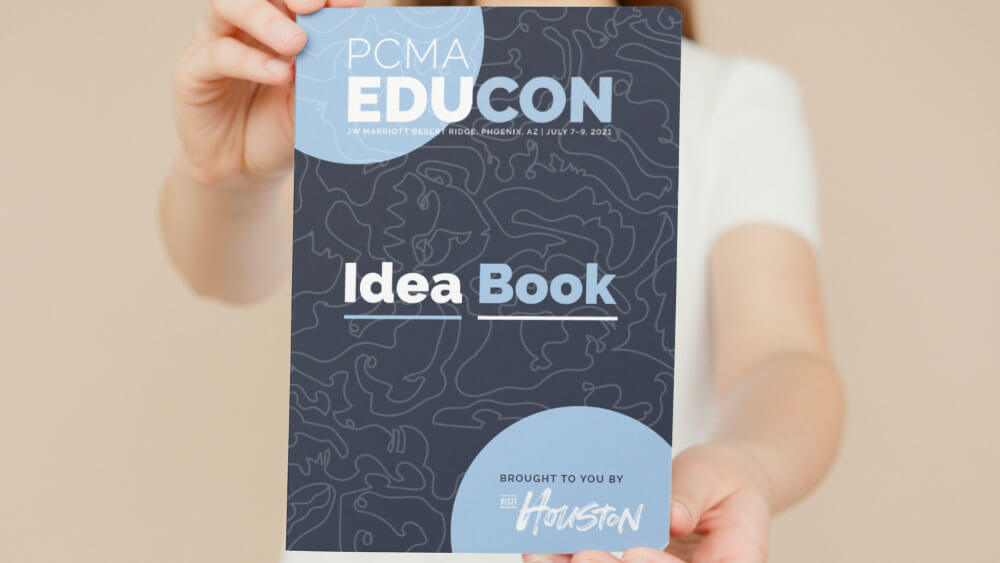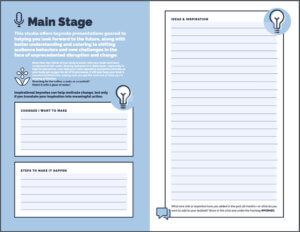
PCMA is bringing the Idea Book back to EduCon this year. The 28-page booklet is available to both digital and in-person participants.
We’ve all been there. “We attend an event where we’re on the receiving end of a firehose of fantastic information, insights, and inspiration — and then we go back home or to the office and forget it all,” said Beki Winchel, learning content and research developer at PCMA. “All that inspiration is gone and there isn’t really a map. We just go back to doing the same old thing.”
Event participants are battling the forgetting curve — the fact that we forget most of what we learn as time passes, a phenomenon first observed in 1885 by German psychologist Hermann Ebbinghaus. Even before the onslaught of the internet, on average, people retained only about 20 percent of the information they learned after only two days.
For EduCon, Winchel and PCMA’s education team have created a tool designed to disrupt that pattern — an “Idea Book,” available to both digital and in-person participants. The 28-page booklet isn’t a new concept at EduCon, but has been created with fresh eyes, said Tonya Almond, PCMA vice president of knowledge and experience design. Far more than a place just to jot down notes, the Idea Book is designed to accompany participants throughout the conference, so that they leave with a set of actionable ideas, plans, and insights that are relevant to their own roles and situations.

On these two pages from the EduCon Idea Book, digital participants will be able to jot down their thoughts about Main Stage presentations.
“I have to say kudos to our education team for really piecing together a thoughtful journey that takes a look at where everybody is when they start,” Almond said. “Whether participants are digital or face-to-face, it helps them ask themselves: What are you trying to solve for? There are places for you to write that down. And there are activities that are recommended for you throughout the journey and space for you to write down your favorite takeaways.”
Just the act of actively reflecting on what you are learning and writing it down can improve learning performance by up to 23 percent, according to research conducted by Harvard Business School professor Francesca Gino. And physically taking notes will do more than increase memory retention, according to psychology research conducted at Dominican University in California — something that Avinash Chandarana, group learning and development director at MCI, shared with participants at a Singapore Mice Forum at the Sands Expo & Convention Centre in Singapore in 2017. People who write down their goals, plans, and dreams, Chandarana told participants, are 42 percent more likely to achieve them.
The Idea Book also includes a series of prompts that invites attendees to share their insights with one another, including via social media using the hashtag #PCMAEC. When you interact with content at a conference, either reflecting on your own or discussing it with other participants, Winchel said, “you are more primed for action, and more emotionally connected to an event. It becomes easier to make the big changes that you want to make.”
Winchel, who has a background in event design as well as content creation, also added experiential elements to the Idea Book, including exercises designed to help participants intentionally shift their mindsets. “What EduCon — and PCMA — is doing right now is asking people to come with us into the future, putting aside the things that belong in the past, and evaluating what doesn’t work anymore,” Winchel said. “We’re inviting participants to actively contribute to creating the future.”
Barbara Palmer is deputy editor of Convene.
